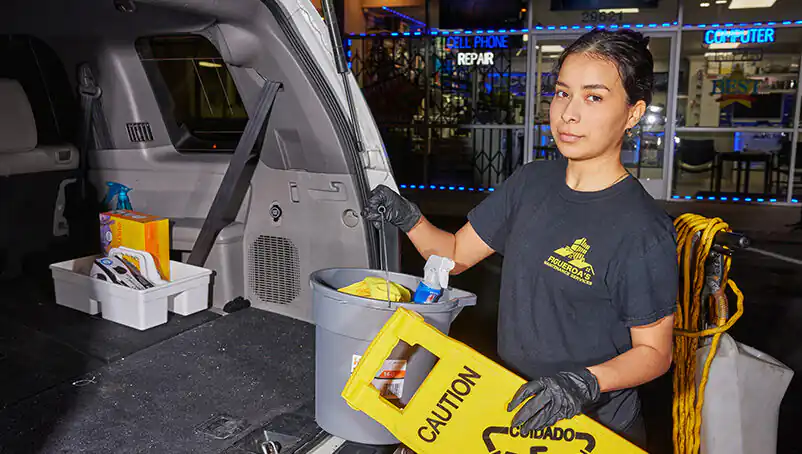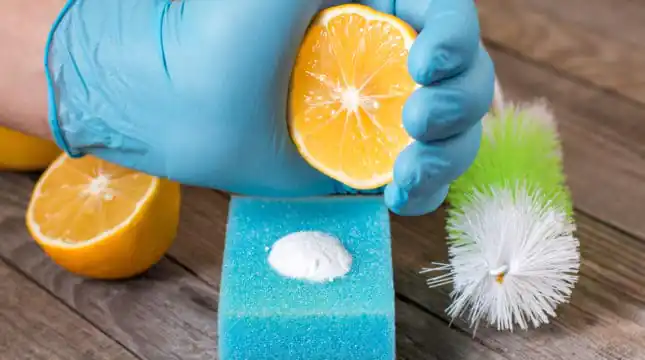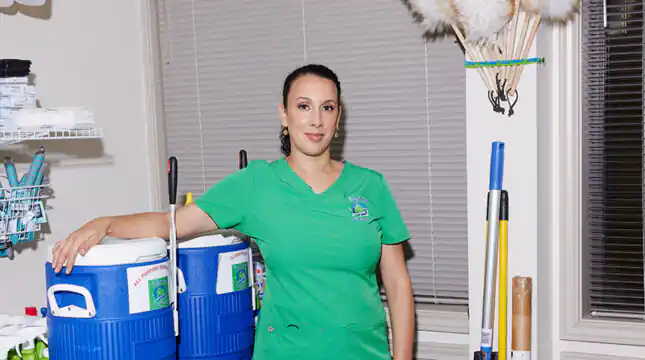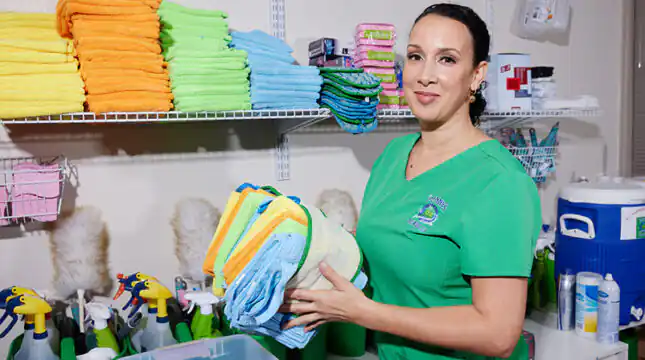| State | Cleaning business license requirement | Business licensing department |
| Alabama | Requires a state business privilege license, typically obtained through the county probate office. | Alabama Department of Revenue |
| Alaska | A state business license is mandatory for all businesses. | Alaska Department of Commerce |
| Arizona | Arizona does not require a state business license. Most city/town offices issue business licenses. Businesses must obtain a Transaction Privilege Tax (TPT) license if engaging in taxable activities. | Not applicable |
| Arkansas | Business licenses are issued at the local level, but businesses must register with the state. | Arkansas Secretary of State |
| California | Janitorial businesses must register with the Labor Commissioner’s Office. Business licenses are issued at the local level. | Not applicable |
| Colorado | Businesses must register with the Colorado Secretary of State. | Colorado Secretary of State |
| Connecticut | Businesses must register with the Connecticut Secretary of the State. | State of Connecticut |
| Delaware | A general business license is required from the Division of Revenue. Businesses (except sole proprietors) must also register with the Delaware Division of Corporations. | Delaware Division of Revenue |
| Florida | Cleaning services fall under “Services to Buildings and Dwellings” and must register accordingly. Register with the Florida Department of State. | Florida Department of State |
| Georgia | Licensing is done on the local level. Businesses must register with the Georgia Secretary of State and the Department of Revenue. | Georgia Secretary of State |
| Hawaii | Register your business with the Department of Commerce and Consumer Affairs (except sole proprietors). | Hawaii Department of Commerce and Consumer Affairs |
| Idaho | Licensing is done on the local level. Businesses must register with the Secretary of State. | Idaho Secretary of State |
| Illinois | Register with the Illinois Department of Revenue. | Illinois Department of Revenue |
| Indiana | No general state business license, but businesses must register with the Indiana Secretary of State and Department of Revenue. | Indiana Secretary of State |
| Iowa | Licensing requirements depend on the nature of the business. Businesses must register with the Iowa Secretary of State. | Iowa Secretary of State |
| Kansas | Business licenses are generally issued at the local level. State registration is required through the Secretary of State (sole proprietors excepted). | Kansas Secretary of State |
| Kentucky | A state business license is not required, but businesses must register with the Kentucky One Stop Business Portal. | State of Kentucky |
| Louisiana | There is no general licensing at the state level. However, you may have to register with the Secretary of State, Department of Revenue and Workforce Commission. | Louisiana Secretary of State |
| Maine | No state licenses required for cleaning services. Businesses must register with the Maine Secretary of State. (sole proprietors excepted) | Maine Department of Economic & Community Development |
| Maryland | A state business license is typically required, and businesses must register with the Maryland Business Express portal. | Maryland Business Express |
| Massachusetts | Businesses must register with the Massachusetts Secretary of the Commonwealth. (Sole proprietors and general partnerships excepted.) | Massachusetts Secretary of the Commonwealth |
| Michigan | Most business entities like LLCs and corporations must file a DBA with the Michigan Department of Licensing and Regulatory Affairs. | Michigan Department of Licensing and Regulatory Affairs |
| Minnesota | Business licenses are not required at the state level for general cleaning services. Businesses must register with the Minnesota Secretary of State. | Minnesota Secretary of State |
| Mississippi | A state business license is not required, but local authorities may require their own. Businesses must register with the Mississippi Secretary of State. | Mississippi Secretary of State |
| Missouri | The state does not require a general business license. Businesses must register with the Missouri Secretary of State. (Sole proprietors and general partnerships excepted.) | Missouri Secretary of State |
| Montana | No general business license is required at the state level. Businesses must register with the Montana Secretary of State. | Montana Secretary of State |
| Nebraska | State-issued business licenses are not required for general cleaning services. Businesses must register with the Nebraska Secretary of State. | Nebraska Secretary of State |
| Nevada | A state business license is required and must be obtained through the Nevada Secretary of State. Businesses must also register with the state. | Nevada Secretary of State |
| New Hampshire | No state business license is required for general cleaning. Businesses must register with the New Hampshire Secretary of State. | New Hampshire Secretary of State |
| New Jersey | The state does not require a general cleaning business license. Businesses must register with the New Jersey Division of Revenue and Enterprise Services. | New Jersey Division of Revenue and Enterprise Services |
| New Mexico | No general business license is required by the state. Businesses must register with the New Mexico Secretary of State. | New Mexico Secretary of State |
| New York | There is no general cleaning license required at the state level. Businesses must register with the New York Department of State. (Sole proprietors and general partnerships excepted.) | New York Department of State |
| North Carolina | A state-issued business license is not required for general cleaning services. Businesses must register with the North Carolina Secretary of State. | North Carolina Secretary of State |
| North Dakota | The state does not issue a general business license. Businesses must register with the North Dakota Secretary of State. | North Dakota Secretary of State |
| Ohio | Cleaning companies do not need a state business license. Businesses must register with the Ohio Secretary of State. | Ohio Secretary of State |
| Oklahoma | No state business license is required for cleaning services. Businesses must register with the Oklahoma Secretary of State. | Oklahoma Secretary of State |
| Oregon | The state does not require a business license for general cleaning. Businesses must register with the Oregon Secretary of State. | Oregon Secretary of State |
| Pennsylvania | No state-issued business license is needed for general cleaning services. Businesses must register with the Pennsylvania Department of State. | Pennsylvania Department of State |
| Rhode Island | A general business license is not required at the state level. Businesses must register with the Rhode Island Secretary of State. | Rhode Island Secretary of State |
| South Carolina | The state does not issue business licenses, though local licenses may be necessary. Businesses must register with the South Carolina Secretary of State. | South Carolina Secretary of State |
| South Dakota | There is no state-level business license requirement for cleaning businesses. Businesses must register with the South Dakota Secretary of State. | South Dakota Secretary of State |
| Tennessee | A state business license is required for businesses with gross receipts above a set threshold. Businesses must register with the Tennessee Secretary of State. | Tennessee Secretary of State |
| Texas | The state does not require a general business license for cleaning services. Businesses must register with the Texas Secretary of State. | Texas Secretary of State |
| Utah | A state business license is required. Businesses must register with the Utah Department of Commerce. | Utah Department of Commerce |
| Vermont | No general business license is required at the state level. Businesses must register with the Vermont Secretary of State. | Vermont Secretary of State |
| Virginia | The state does not require a business license for general cleaning services. Businesses must register with the Virginia State Corporation Commission. | Virginia State Corporation Commission |
| Washington | A state business license is required. Businesses must register with the Washington Secretary of State. | Washington Department of Revenue |
| West Virginia | No state-issued business license is required for cleaning services. Businesses must register with the West Virginia State Tax Department. | West Virginia State Tax Department |
| Wisconsin | There is no state license required for general cleaning businesses. Businesses must register with the Wisconsin Department of Revenue. | Wisconsin Department of Revenue |
| Wyoming | A state-issued business license is not required. Businesses must register with the Wyoming Secretary of State. | Wyoming Secretary of State |






